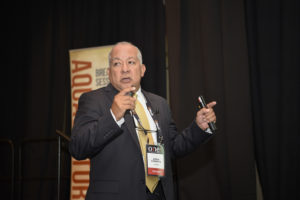
Wide-ranging advances in aquaculture presented at Alltech ONE18
The consensus among several presenters at the aquaculture portion of the Alltech ONE18 conference was clear: Much more seafood is needed to feed humans, whose numbers will reach 8 billion in less than six years.
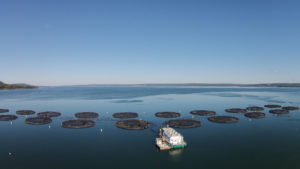
Warming oceans prompt adaptation efforts for aquaculture
A five-year study in Canada aims to provide more answers about warmer waters with lower oxygen levels and a way for farmed fish producers to adapt to climate change.
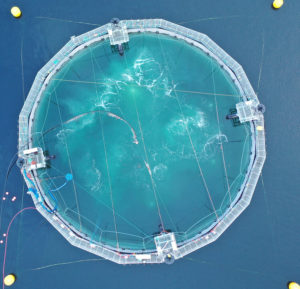
Not RAS, not net pens: Salmon farm concepts redefine barriers
Sea lice, algae, temperature changes and escapes still vex salmon farmers, but new cage systems aim to surmount these concerns with innovative barriers.
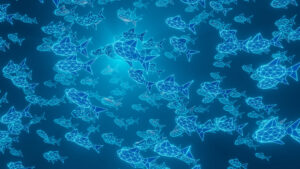
‘AI ticks all the boxes’ and is proving to be a perfect match for aquaculture
Artificial intelligence (AI) is rippling through the aquaculture industry, promising greater efficiencies and insights, as well as investor interest.
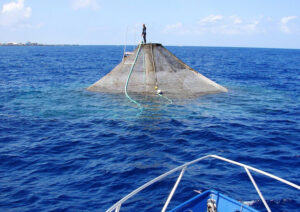
A review of marine fish aquaculture in submerged cages
An evaluation of aquaculture in submerged cages finds knowledge gaps in linking desirable ambient conditions, species needs and production know-how.
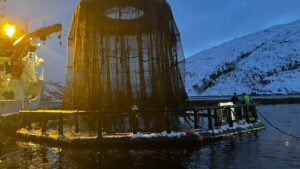
Early results from Cermaq’s iFarm sees sea lice levels reduced by 50 percent
Harvest results suggest ‘high quality’ of farmed salmon in iFarm net pens, with sea lice levels reduced by 50 percent, according to Cermaq.
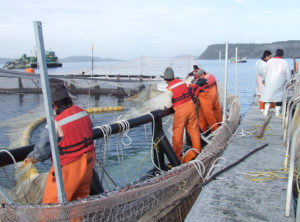
Chile’s salmon industry addresses health crises
Environmental and fish health problems have affected Chile’s salmon farmers since 2004. As production ramped up, 2006 saw an increase in sea lice that reduced output. In 2007, infectious salmon anemia spread across the farming region and quickly cut production.
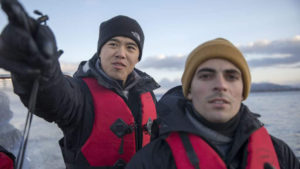
Now Hatching: Millennial duo’s aquaculture analytics software
In the first startup profile of the inaugural Hatch cohort in Bergen, meet two young software developers who left Washington, D.C., for Norway and the power of personal connections to grow their aquaculture analytics business.
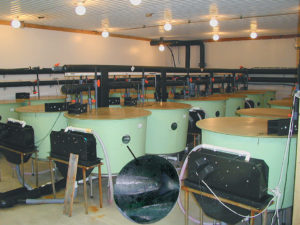
Supplementing aquaculture diets with nucleotides
Nucleotides are basic building blocks of the nucleic acids DNA and RNA, and necessary elements in the their replication during cell division and renewal.
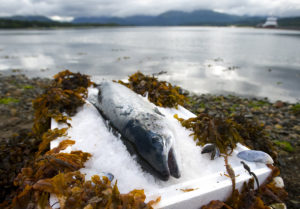
Aquaculture UK: Stepping up to the plate
There’s considerable opportunity to grow the UK aquaculture industry. At the Aquaculture UK exhibition and conference in Aviemore, Scotland shows the way.

Healthy fish: Recap of Day 1 at GOAL 2016
Some of the world’s top aquatic animal disease experts shared knowledge about mitigation techniques at the GOAL conference in Guangzhou, China. Topics included sea lice, streptococcus and EHP, which was referred to as the “most insidious” disease impacting shrimp production.
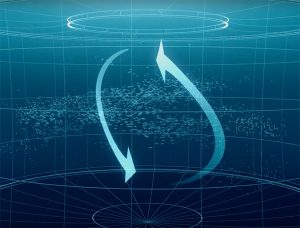
Thinking outside the cage: Avant-garde aquaculture in Norway
Salmon farming in Norway is poised for an innovation boom. The biggest players are putting cutting technology in the water to solve some of the industry’s most persistent problems, such as sea lice, fish escape and waste management.
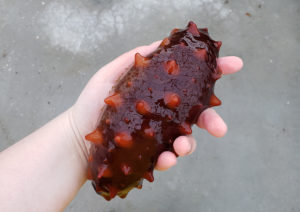
A fresh focus on sea cucumbers – nature’s recyclers
Researchers in Scotland, Sweden and Canada are exploring the potential of sea cucumbers, the squishy detritivores that can help clean up behind fish pens.
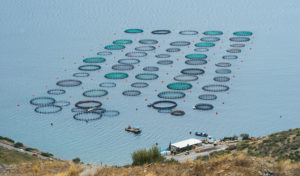
Evaluating passive acoustic telemetry to monitor gilthead sea bream juveniles
An evaluation of passive acoustic telemetry techniques as a tool to monitor welfare of gilthead sea bream juveniles implanted with acoustic transmitters.
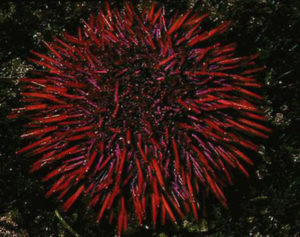
Sea urchin aquaculture: From laboratory to production
The gonads of male and female sea urchins is considered a delicacy. A strong market value for quality uni make urchins an excellent aquaculture candidate.
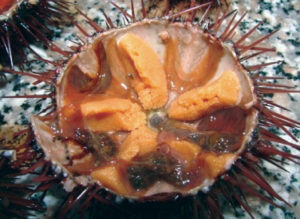
Aquaculture could enhance Mediterranean Sea urchin fishery
Although researchers in several countries are working to enhance sea urchin fisheries or commercial production, the development of a major commercial industry has been restrained by the lack of cost-effective production technology.
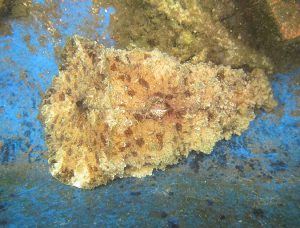
The odd wedge sea hare is useful as an ‘algae cleaner’
Marine gastropod molluscs known as sea hares are relatively unknown animals that have significant importance in biomedical research due to their particular nervous system. And because of their ability to consume large amounts of algae, they can be very useful in clearwater, marine aquaculture systems.
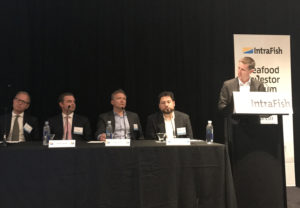
At seafood investor forum, a ‘blue-sky’ outlook and a search for the next salmon
At the IntraFish Seafood Investor Forum in New York, “all roads lead to salmon.” Buoyed by high prices and soaring demand, the sector is an example worth following. But it’s not without its challenges.
